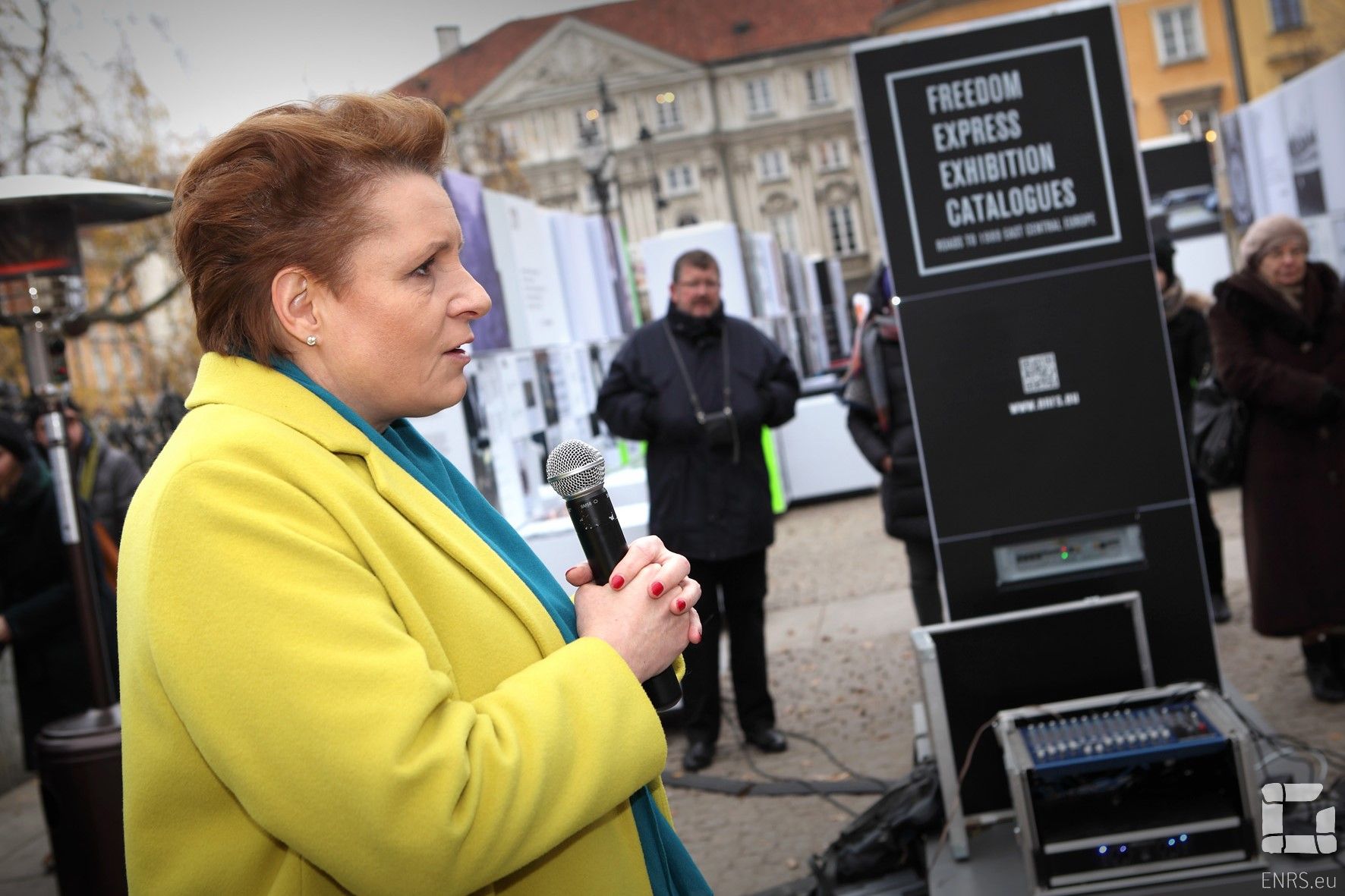28 Nov. - 29 Dec., Warsaw (Krakowskie Przedmieście)
The exhibition was officially opened on 28 November by prof. Małgorzata Omilanowska, Minister of Culture and National Heritage of the Republic of Poland.
The exhibition “Freedom Express. Roads to 1989. East-Central Europe 1939-1989” was officially opened on 28 November by prof. Małgorzata Omilanowska, Minister of Culture and National Heritage of the Republic of Poland, with the participation of prof. Artur Nowak-Far, Undersecretary of State in Polish Ministry of Foreign Affairs, dr. Iván Gyurcsík, Ambassador of Hungary in Poland, and Dieter Reinl, First Counsellor in German Embassy in Warsaw.
In reference to the title of the exhibition Minister Omilanowska underlined the importance of the first part of the Freedom Express campaign - the study trip of a group of young Europeans in the footsteps of the events of 1989 - and stressed that projects such as the study trip or the exhibition are of particular significance: they open the minds of young people to a broader international perspective.
Minister Nowak-Far from the Polish Ministry of Foreign Affairs, which co-financed the exhibition, said it is crucial that the exhibition is to be presented in several European cities next year, as it would help to deepen relations between countries of the region.
Dr. Iván Gyurcsík, Ambassador of Hungary in Poland, stressed the importance of international contacts during the difficult times of repressions and during the struggle for freedom. He also quoted the words of pope Francis from his visit to the European Parliament a few days earlier: "The time has come for us to abandon the idea of a Europe which is fearful."
Dieter Reinl, First Counsellor in German Embassy in Warsaw, said the period after the collapse of communism was important for Germany in settling relations with countries of the region. "For Germans the Freedom Express is also a Reconciliation Express, which we willingly join." – said Mr. Reinl.
The exhibition, designed by historians associated with European Network Remembrance and Solidarity, documents the complicated process through which this part of Europe regained its freedom from communist dictatorship. Presented earlier this year in Berlin and Brussels, the exhibition concentrates on various ways in which civil liberties were limited in the former communist bloc and on attempts made to regain them. It focuses especially on the question of what connects and divides remembrance of the events that preceded the fall of communism in Central and Eastern European.
The exhibition is available for visitors on Krakowskie Przedmieście (Herbert Hoover Square) till 15 December. Mirosław Nizio, designer of the exhibition recommends to pay a visit in the evening, when the exhibition looks especially well thanks to the built-in illumination.
